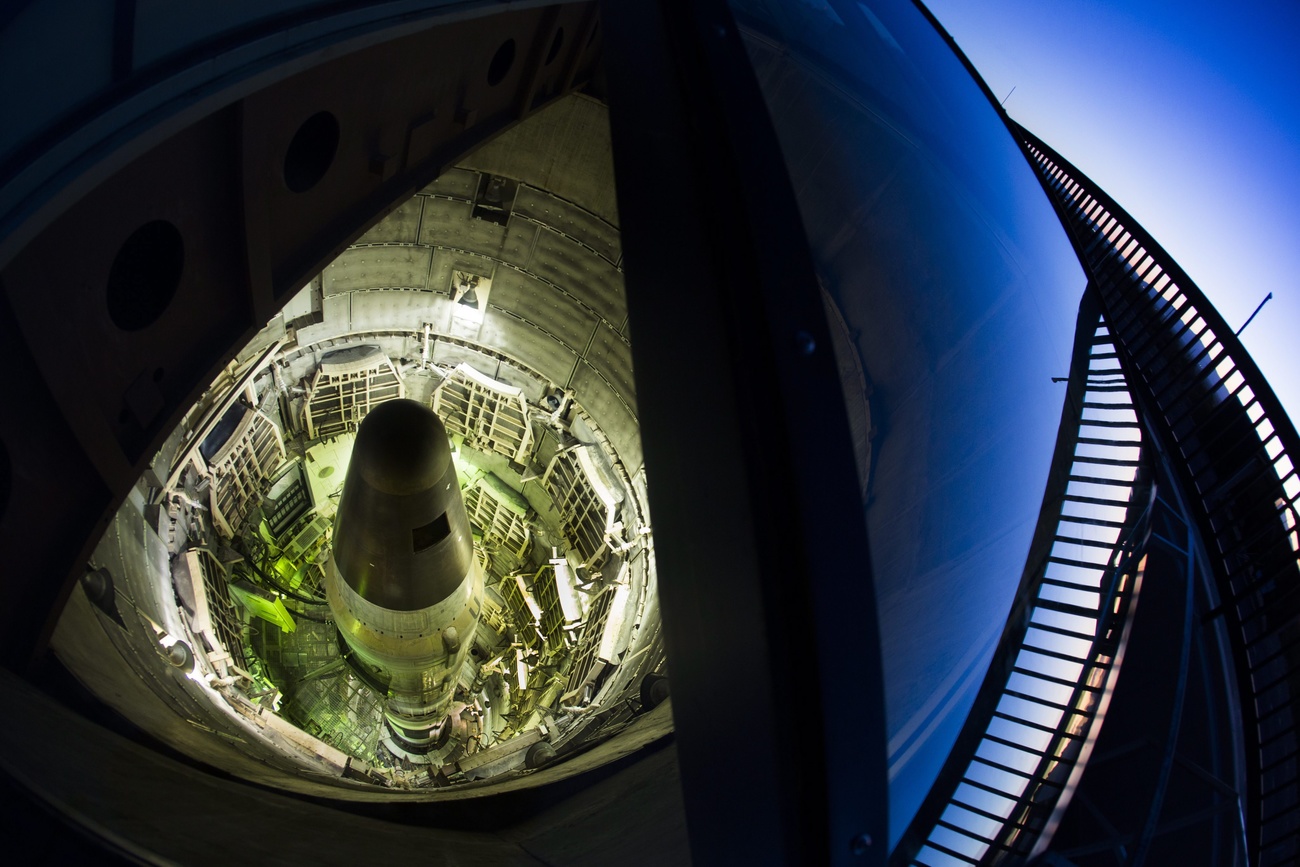
Switzerland urged to officially renounce nuclear weapons

Political and humanitarian actors have called on Switzerland to sign the United Nations Treaty on the Prohibition of Nuclear Weapons (TPNW).
Former foreign minister Micheline Calmy-Rey and ex-interior minister Ruth Dreifuss joined the appeal on Monday, together with Jakob Kellenberger, president of the International Committee of the Red Cross, and others.
The UN treaty banning weapons of mass destruction came into force in 2021.

More
Switzerland’s wait-and-see approach to nuclear ban treaty is sensible
Switzerland helped draft the treaty but has so far refused to sign up to it, despite being the depositary state for the Geneva Conventions.
So far, 68 countries have signed TPNW and become state parties, including Austria, Ireland, Mexico and New Zealand. But countries that already possessed nuclear weapons, and their allies, refused to take part in the formulation of TPNW.
Switzerland has ratified the Treaty on the Non-Proliferation of Nuclear Weapons but has proven reticent to sign TPNW. The government cites potential conflicts with Switzerland’s relationship with NATO countries.
Ministers have pledged to look at the TPNW issue again next year.
“The Swiss position is that Switzerland can support the TPNW once it becomes apparent that it will help, rather than hinder, worldwide nuclear abolition,” Stephen Herzog, a senior researcher in nuclear arms control at the Center for Security Studies at ETH Zurich, wrote in a swissinfo.ch opinion piece in July.
Addressing the UN in New York in August, Swiss president Ignazio Cassis called for common efforts to reduce nuclear risks worldwide.
“This conference must set the course for an urgently needed change: to reduce the role of nuclear weapons, to reduce the likelihood of a nuclear accident or usage as a result of a misunderstanding,” he saidExternal link.

In compliance with the JTI standards
More: SWI swissinfo.ch certified by the Journalism Trust Initiative






























You can find an overview of ongoing debates with our journalists here . Please join us!
If you want to start a conversation about a topic raised in this article or want to report factual errors, email us at english@swissinfo.ch.